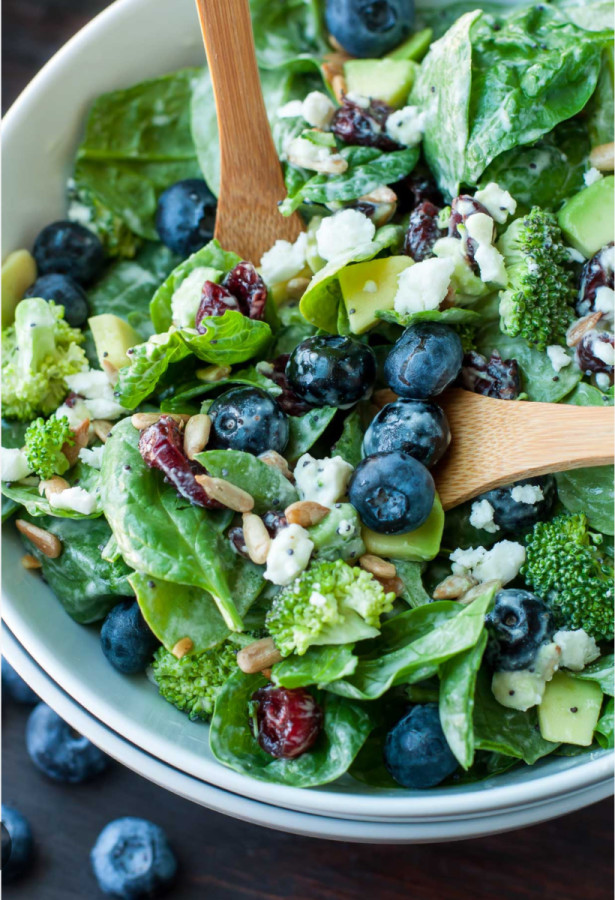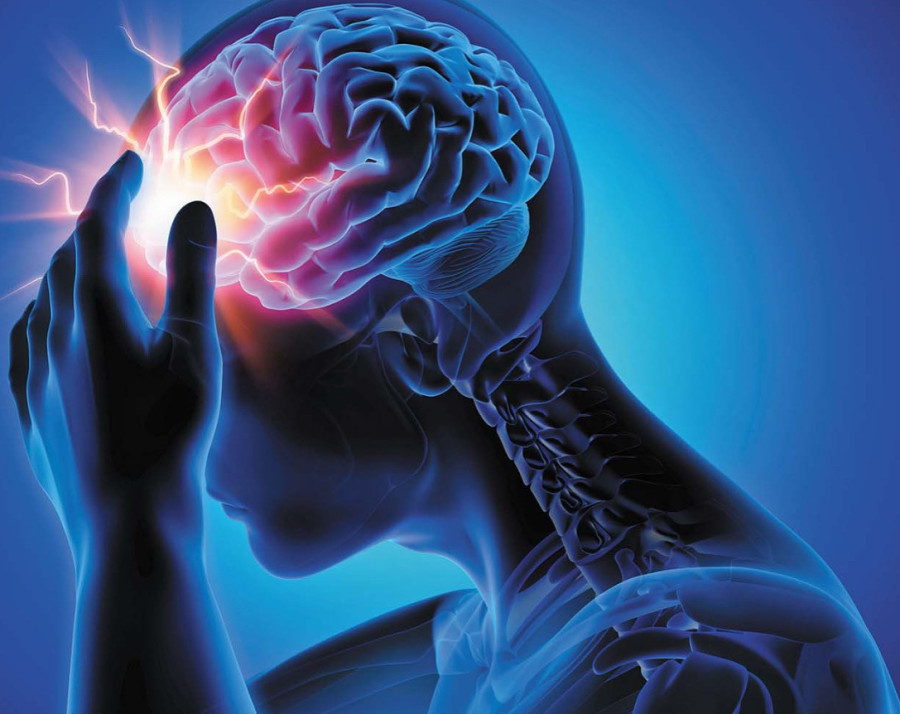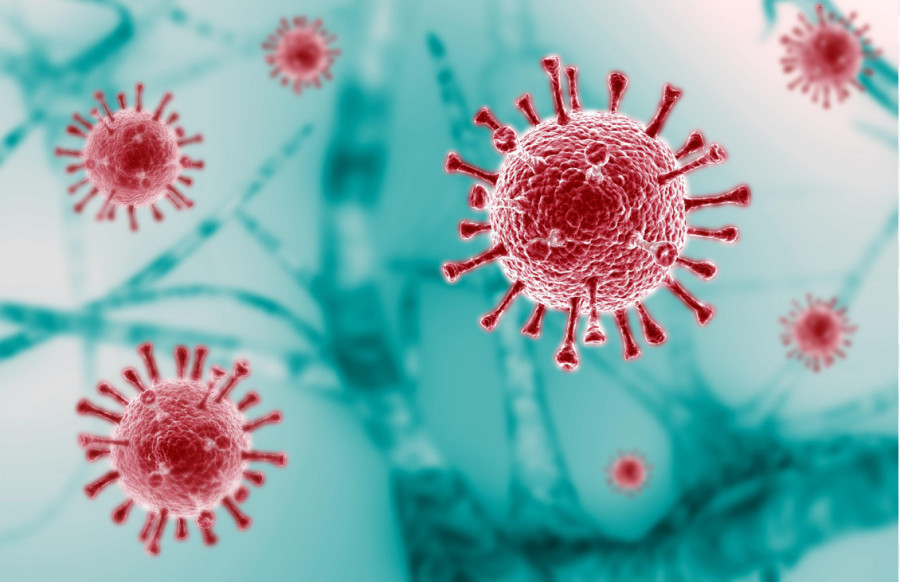Incorporating a variety of fruits and vegetables into your diet is essential for good health. Here are five highly recommended ones:
1. Spinach: Packed with vitamins A, C, and K, as well as iron and antioxidants, spinach is great for eye health and reducing oxidative stress.
2. Kale: Another leafy green, kale is rich in vitamins, minerals, and antioxidants. It's known for its anti-inflammatory properties and can support heart health.
3. Berries (e.g., blueberries, strawberries): Berries are low in calories and high in fiber, vitamins, and antioxidants. They help improve heart health and cognitive function.
4. Broccoli: This cruciferous ...
Continue Reading
5 months ago

5 months ago

5 months ago
Here are five important things to know about receiving the new Moderna #COVID-19 #vaccine in 2025:
1. Safety and Efficacy: The #FDA has approved the updated 2025 - 2026 monovalent formulation vaccine by Moderna, confirming that the benefits continue to outweigh risks based on extensive data of doses administered. The safety profile is robust, having been vetted through rigorous studies.
2. State Restrictions: There are variations in vaccine access across states. Some states have enacted bills that restrict mRNA vaccines for minors or limit school mandates. For example, states like Iowa and Florida have introduced measures that could ...
Continue Reading
1. Safety and Efficacy: The #FDA has approved the updated 2025 - 2026 monovalent formulation vaccine by Moderna, confirming that the benefits continue to outweigh risks based on extensive data of doses administered. The safety profile is robust, having been vetted through rigorous studies.
2. State Restrictions: There are variations in vaccine access across states. Some states have enacted bills that restrict mRNA vaccines for minors or limit school mandates. For example, states like Iowa and Florida have introduced measures that could ...
Continue Reading

5 months ago
Here are five effective ways to treat mild to moderate #headaches:
1. Hydration: Drink plenty of water, as dehydration can often trigger headaches. Herbal teas or electrolyte drinks can also be beneficial. Review your consumption of food and drinks, some may be associated with headaches such as #asparatame (NutraSweet).
2. Over-the-Counter Pain Relievers: Medications like ibuprofen or acetaminophen can provide quick relief. Always follow the recommended dosage.
3. Rest in a Dark Room: Find a quiet, dark space to rest. Reducing light and noise can help alleviate headache symptoms, especially if it’s a migraine.
4. Cold or Warm Compress: ...
Continue Reading
1. Hydration: Drink plenty of water, as dehydration can often trigger headaches. Herbal teas or electrolyte drinks can also be beneficial. Review your consumption of food and drinks, some may be associated with headaches such as #asparatame (NutraSweet).
2. Over-the-Counter Pain Relievers: Medications like ibuprofen or acetaminophen can provide quick relief. Always follow the recommended dosage.
3. Rest in a Dark Room: Find a quiet, dark space to rest. Reducing light and noise can help alleviate headache symptoms, especially if it’s a migraine.
4. Cold or Warm Compress: ...
Continue Reading

5 months ago
#mRNA #vaccines, like those developed for #COVID-19 by Pfizer-BioNTech and Moderna, work by using #messenger #RNA (mRNA) to instruct cells in the body to produce a harmless piece of the spike protein found on the surface of the #SARS-CoV-2 virus. Here’s a breakdown of how they work:
1. Introduction of mRNA: The vaccine contains synthetic mRNA that encodes the instructions for making the spike protein.
2. Cell Uptake: Once injected, the mRNA enters cells, where the cellular machinery reads the instructions and begins producing the spike protein.
3. Immune Response: The presence of this protein triggers the immune system to recognize it ...
Continue Reading
1. Introduction of mRNA: The vaccine contains synthetic mRNA that encodes the instructions for making the spike protein.
2. Cell Uptake: Once injected, the mRNA enters cells, where the cellular machinery reads the instructions and begins producing the spike protein.
3. Immune Response: The presence of this protein triggers the immune system to recognize it ...
Continue Reading
6 months ago

6 months ago
PHARMATIVE.com - Here’s a list of ten #harmful #foods you should consider avoiding for better health:
1. Raw #Sugar: High in calories with no nutritional benefits, contributing to weight gain and increased risk of diabetes.
2. #Fructose: Often found in high-fructose corn syrup, it can lead to obesity, insulin resistance, and fatty liver disease when consumed in excess.
3. Red Meat: Linked to higher risks of heart disease and certain cancers, especially when consumed in large quantities or processed forms.
4. #Fried Foods: High in unhealthy fats and calories, they can contribute to weight gain and increase the risk of heart disease.
5. ...
Continue Reading
1. Raw #Sugar: High in calories with no nutritional benefits, contributing to weight gain and increased risk of diabetes.
2. #Fructose: Often found in high-fructose corn syrup, it can lead to obesity, insulin resistance, and fatty liver disease when consumed in excess.
3. Red Meat: Linked to higher risks of heart disease and certain cancers, especially when consumed in large quantities or processed forms.
4. #Fried Foods: High in unhealthy fats and calories, they can contribute to weight gain and increase the risk of heart disease.
5. ...
Continue Reading
7 months ago

7 months ago
PHARMATIVE - Here are five effective ways to treat a severe #sunburn:
1. Cool Compresses: Apply cool, damp cloths or take a cool bath to soothe the skin and reduce inflammation. Avoid using ice directly on the skin to prevent further irritation.
2. Moisturizers: Use aloe vera gel or a moisturizing lotion containing ingredients like hyaluronic acid or glycerin to hydrate the skin and help with healing.
3. Hydration: Drink plenty of water to stay hydrated, as sunburn can lead to dehydration. Avoid alcohol and caffeinated beverages, which can worsen dehydration.
4. Over-the-Counter Pain Relief: Take nonsteroidal anti-inflammatory drugs ...
Continue Reading
1. Cool Compresses: Apply cool, damp cloths or take a cool bath to soothe the skin and reduce inflammation. Avoid using ice directly on the skin to prevent further irritation.
2. Moisturizers: Use aloe vera gel or a moisturizing lotion containing ingredients like hyaluronic acid or glycerin to hydrate the skin and help with healing.
3. Hydration: Drink plenty of water to stay hydrated, as sunburn can lead to dehydration. Avoid alcohol and caffeinated beverages, which can worsen dehydration.
4. Over-the-Counter Pain Relief: Take nonsteroidal anti-inflammatory drugs ...
Continue Reading
8 months ago

8 months ago
The top five major #health issues affecting young adults include:
1. Mental Health Disorders: Conditions such as #anxiety, #depression, and stress-related disorders are prevalent among young adults, often exacerbated by social pressures, academic stress, and lifestyle changes.
2. Substance Abuse: This includes the misuse of alcohol, prescription drugs, and illegal substances. #substanceabuse can lead to long-term health issues and is a significant concern in this age
group.
3. #Obesity and Nutrition: Poor dietary choices and sedentary lifestyles contribute to obesity, which can lead to various health problems, including diabetes, heart ...
Continue Reading
1. Mental Health Disorders: Conditions such as #anxiety, #depression, and stress-related disorders are prevalent among young adults, often exacerbated by social pressures, academic stress, and lifestyle changes.
2. Substance Abuse: This includes the misuse of alcohol, prescription drugs, and illegal substances. #substanceabuse can lead to long-term health issues and is a significant concern in this age
group.
3. #Obesity and Nutrition: Poor dietary choices and sedentary lifestyles contribute to obesity, which can lead to various health problems, including diabetes, heart ...
Continue Reading

8 months ago
Although the use of Artifical Intelligence (#AI) is controversial and AI can produce bias, errors and even just make false statements (i.e. #hallucinations), its important for PC users to start famiarize themselves with it’s functionality. Here are five of the best free AI #apps that you might find useful:
1. Google Assistant: A versatile voice-activated assistant that can help with scheduling, reminders, answering questions, and smart home control.
2. Microsoft Azure Cognitive Services: Offers a collection of AI services and APIs to build intelligent applications, including language understanding, speech recognition, and image processing. ...
Continue Reading
1. Google Assistant: A versatile voice-activated assistant that can help with scheduling, reminders, answering questions, and smart home control.
2. Microsoft Azure Cognitive Services: Offers a collection of AI services and APIs to build intelligent applications, including language understanding, speech recognition, and image processing. ...
Continue Reading

8 months ago
PHARMATIVE.com - Here are five of the #healthiest #fruits you can include in your diet:
1. **Blueberries**: Rich in antioxidants, vitamins C and K, and fiber, blueberries are known for their anti-inflammatory properties and potential benefits for heart health and brain function.
2. **Avocado**: High in healthy fats, particularly monounsaturated fats, avocados are also packed with fiber, potassium, and vitamins E and C, promoting heart health and aiding in digestion.
3. **Apples**: Apples are a great source of fiber and vitamin C. They also contain various antioxidants, which can help reduce the risk of chronic diseases and improve gut ...
Continue Reading
1. **Blueberries**: Rich in antioxidants, vitamins C and K, and fiber, blueberries are known for their anti-inflammatory properties and potential benefits for heart health and brain function.
2. **Avocado**: High in healthy fats, particularly monounsaturated fats, avocados are also packed with fiber, potassium, and vitamins E and C, promoting heart health and aiding in digestion.
3. **Apples**: Apples are a great source of fiber and vitamin C. They also contain various antioxidants, which can help reduce the risk of chronic diseases and improve gut ...
Continue Reading
















1. Limit Outdoor Exposure: Stay indoors on high pollen days, especially during early morning or late afternoon when pollen counts are usually highest. Keep windows closed and use air conditioning.
2. Use HEPA Filters: Install high-efficiency particulate air (HEPA) filters in your home and car to reduce indoor allergens. Regularly clean and replace filters to maintain effectiveness.
3. Saline Nasal Rinses: Use saline nasal sprays or rinses to help clear allergens and mucus from your nasal passages, providing relief from congestion.
4. Wear Sunglasses and Masks: When outdoors, ...
Continue Reading